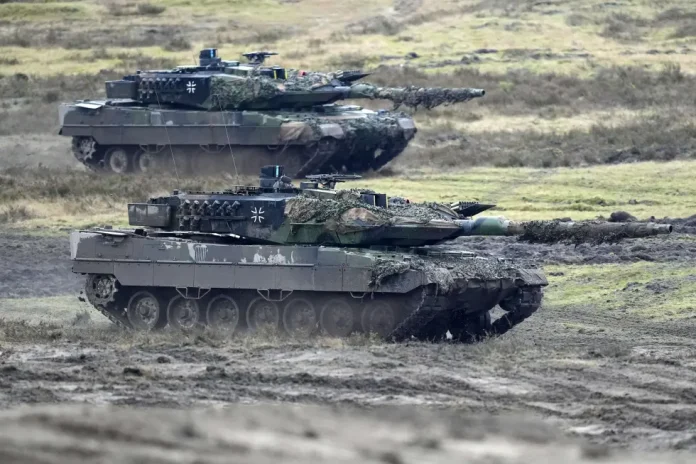Switzerland decided to return 25 Leopard 2 battle tanks to Germany provided they do not end up in Ukraine.
The government gave final approval for the exports on Wednesday, re-selling the tanks to the original manufacturer Rheinmetall. The deal was being prepared for most of the year as European countries tried to persuade neutral Switzerland to fill the thinning ranks of other European and NATO countries with some of its excess tanks stored in warehouses.
The authorities in Bern resisted at first, fearing that the tanks would later be deployed against Russian troops in Ukraine. This would have violated the country’s constitutionally enshrined military neutrality and its strict arms export laws.
“This delivery of tanks abroad satisfies the approval criteria and the war material law. Particularly meaningful is the fact that Germany has assured that the sold tanks will remain in Germany or NATO or EU partners, to fill their own gaps.”
Switzerland currently has 136 tanks in service and a further 96 decommissioned models in storage, 25 of which are now scheduled to be returned. Economy Minister Robert Habeck and Defence Minister Boris Pistorius made a joint appeal in February to reconsider its position and provide some of the vehicles. They sought to reassure Switzerland that resupplying countries not involved in the war in Ukraine would not violate arms export rules.
The Swiss parliament gave preliminary approval in September. The Swiss Army, which owns the tanks, then applied for export. It was officially approved on Wednesday.
Prior to the outbreak of war in Ukraine in 2022, Germany had very similar rules for exporting weapons to engage in hot conflicts. They emerged during Germany’s defeat in World War II and its postwar efforts to redefine itself as a non-aggressive nation.
The government in Berlin faced considerable pressure from NATO allies and Ukraine early in the conflict over its perceived hesitancy to provide Kyiv with a number of different weapons.
Leopard 2 battle tanks were an example of military hardware that Germany agreed to send only after weeks of pressure and following US assurances that it would send comparable military vehicles from its own stockpile.
However, due to Kyiv’s constant need for supplies, Western stocks of both military equipment and the ammunition it uses have come under strain.
